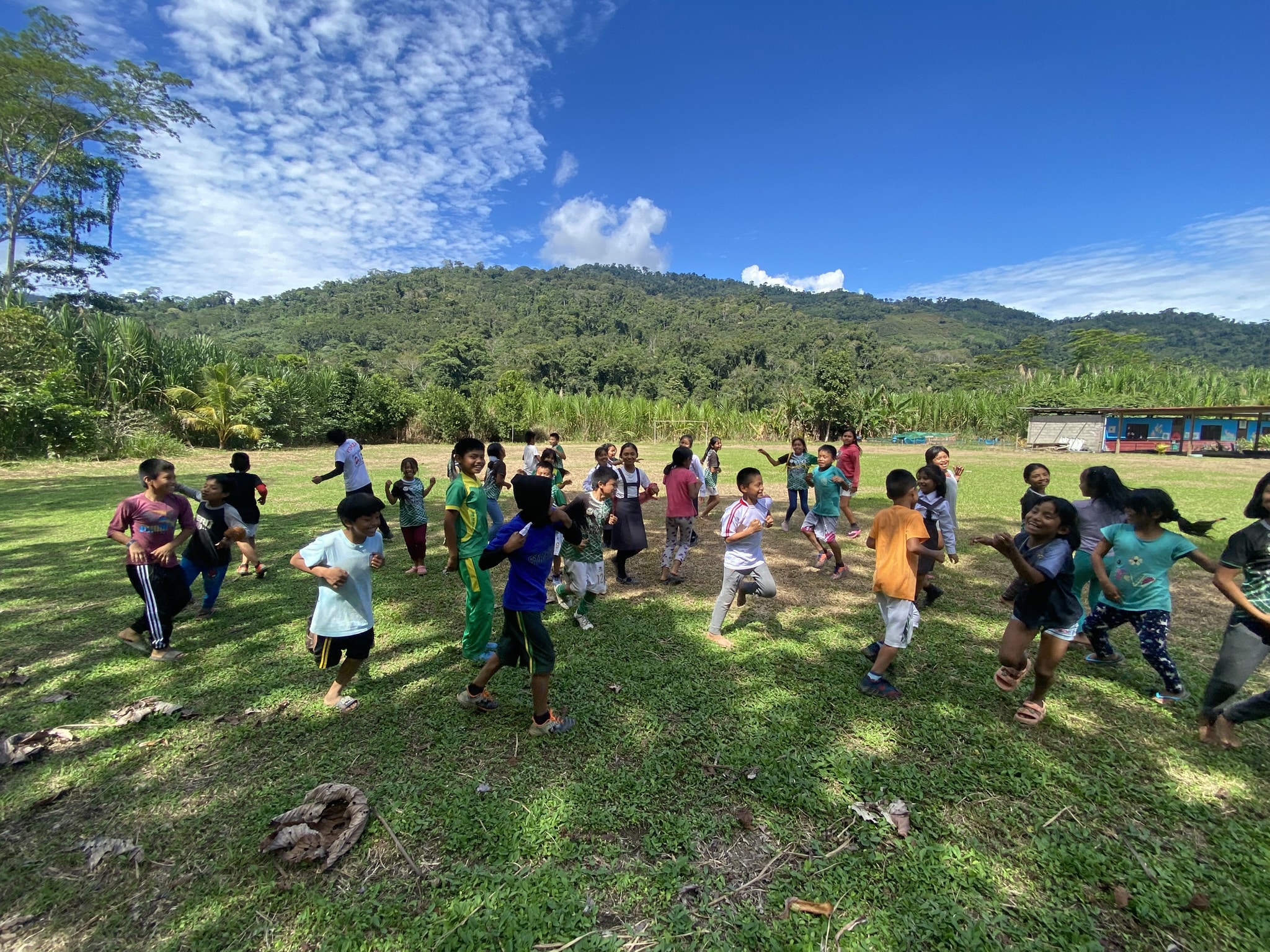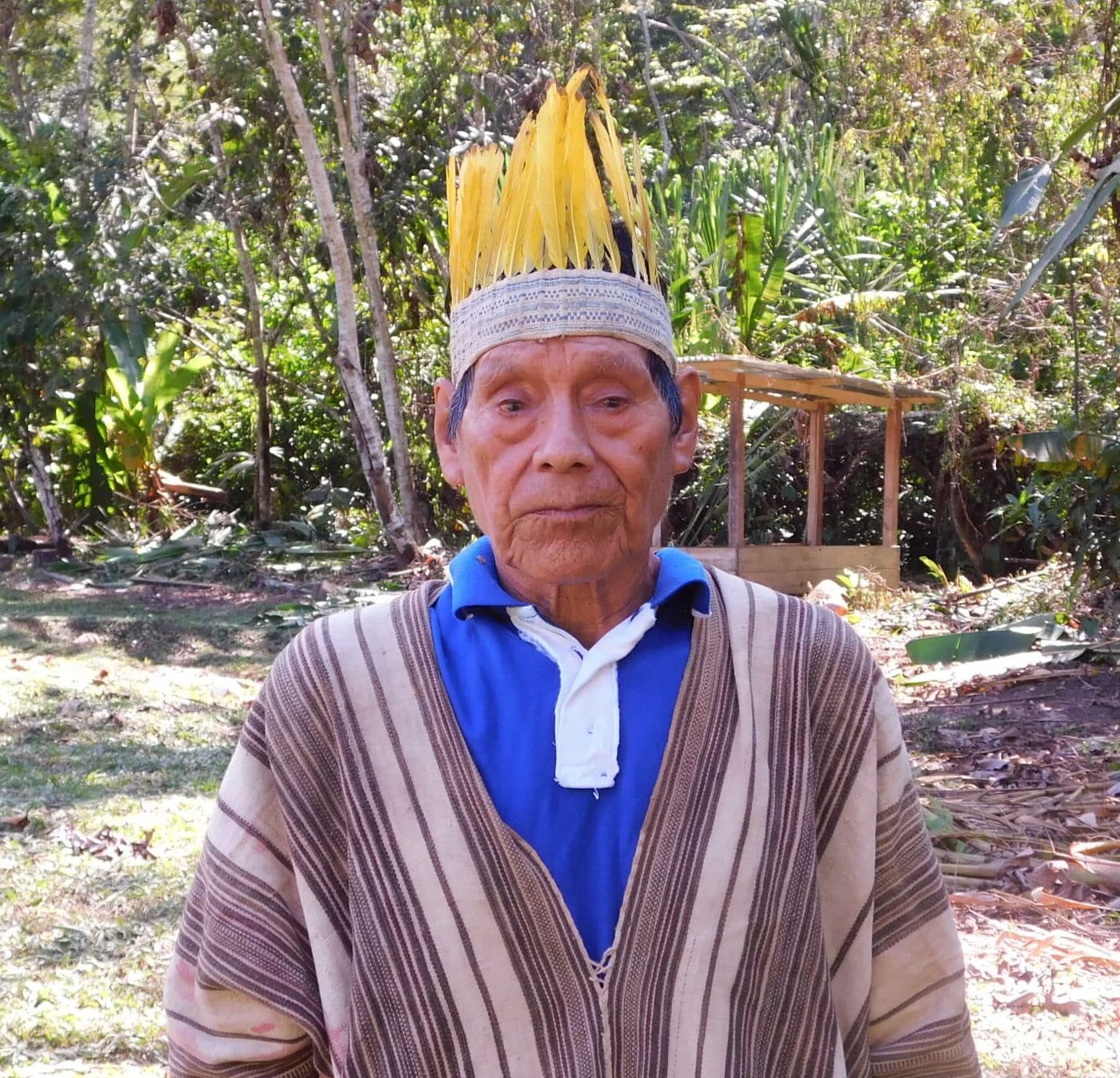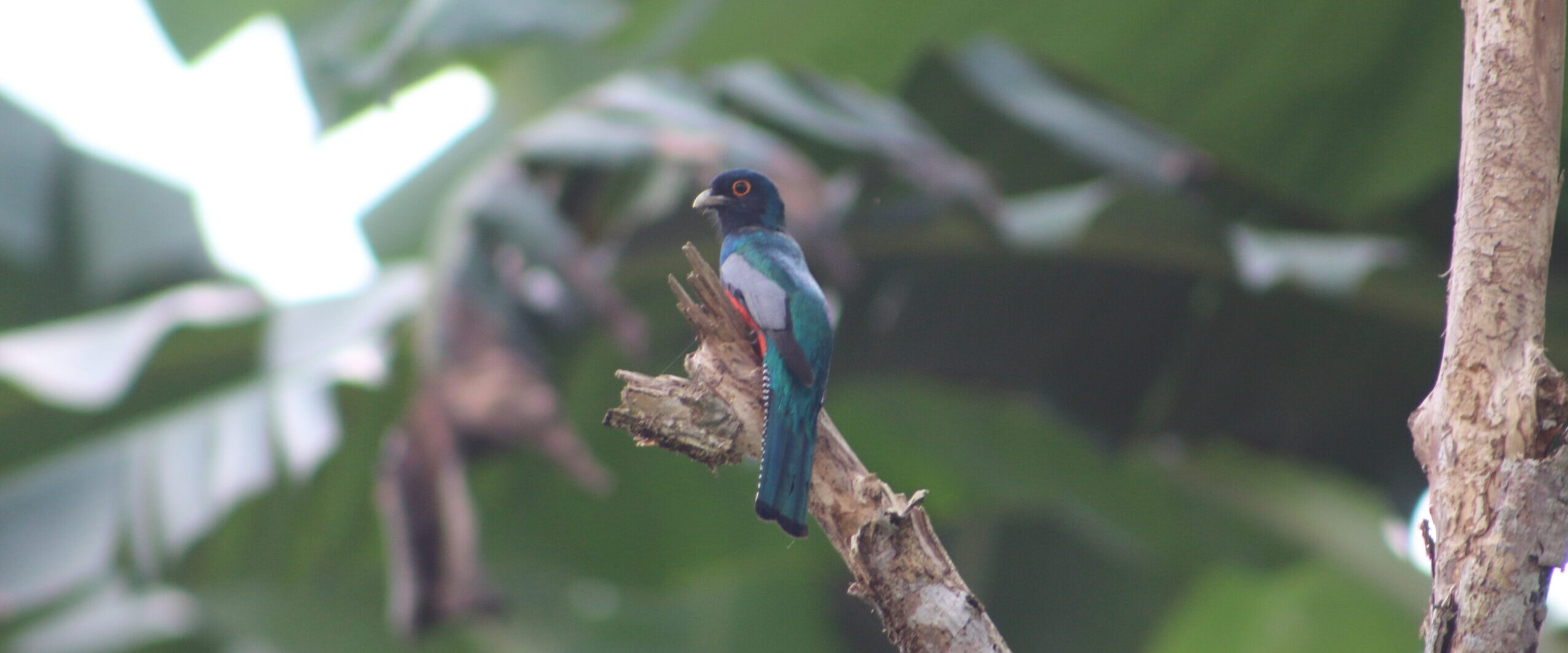
Amazon Heritage Project
The Amazon Natural and Cultural Heritage Conservation Project commenced as a pilot project in May 2023. It aims to help conserve and restore ecosystems and endangered species and preserve the cultural traditions and knowledge so indigenous communities can maintain their traditional way of life. The project works in a small community called Monte Carmelo, located in the basin of the Urubamba River in the Southeastern Peruvian Amazon. The community manages around 20 thousand hectares of tropical forest — 12.6 thousand of which are primary forests designated for conservation.
The project conserves and restores degraded Amazonian forest areas by promoting the recovery of native vegetation and protecting key habitats for local wildlife. It strengthens ecosystem health through the establishment of community-run nurseries, reforestation with native species, and the mapping of critical zones such as collpas and birdwatching areas. The initiative also engages local families and schools in the restoration process, fostering ownership and long-term care for the forest. In collaboration with the community, the project supports the development of a local conservation area and the rehabilitation of shared spaces for environmental education and cultural knowledge exchange.
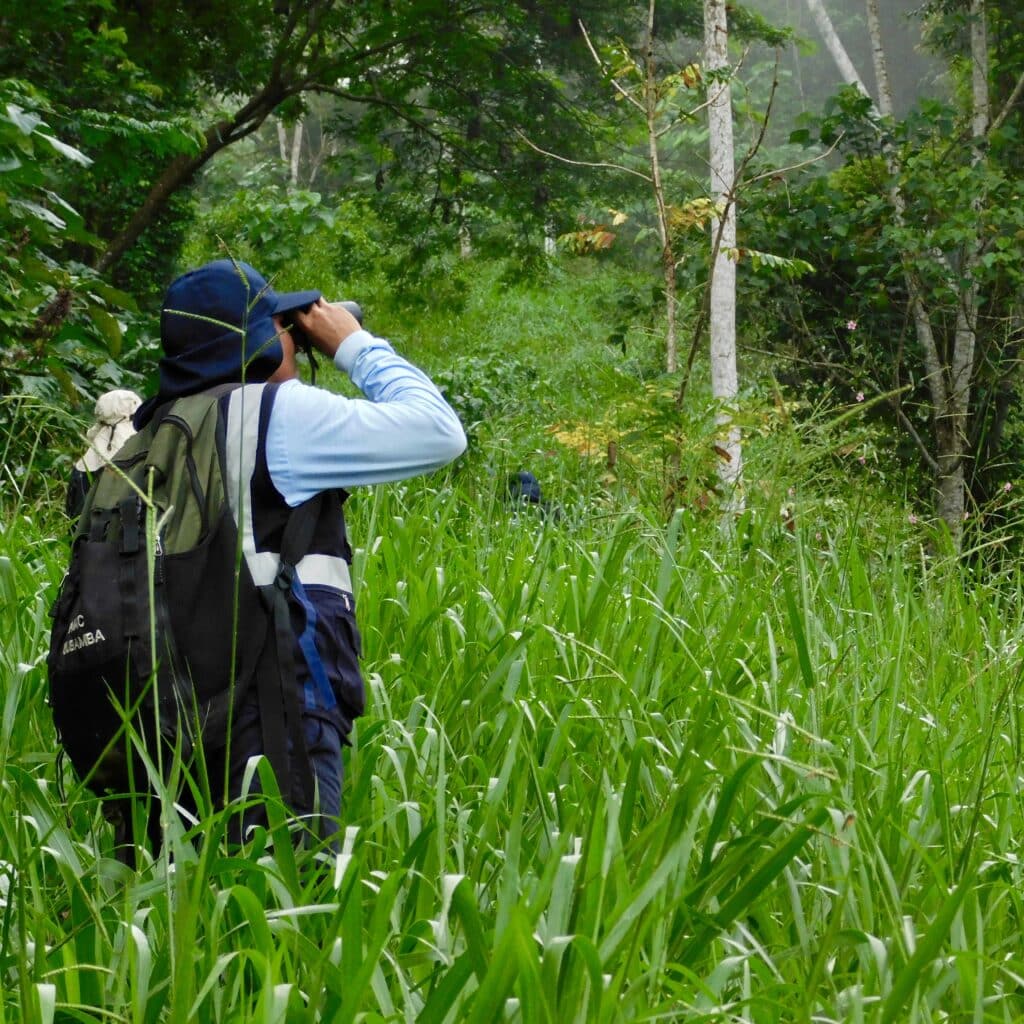
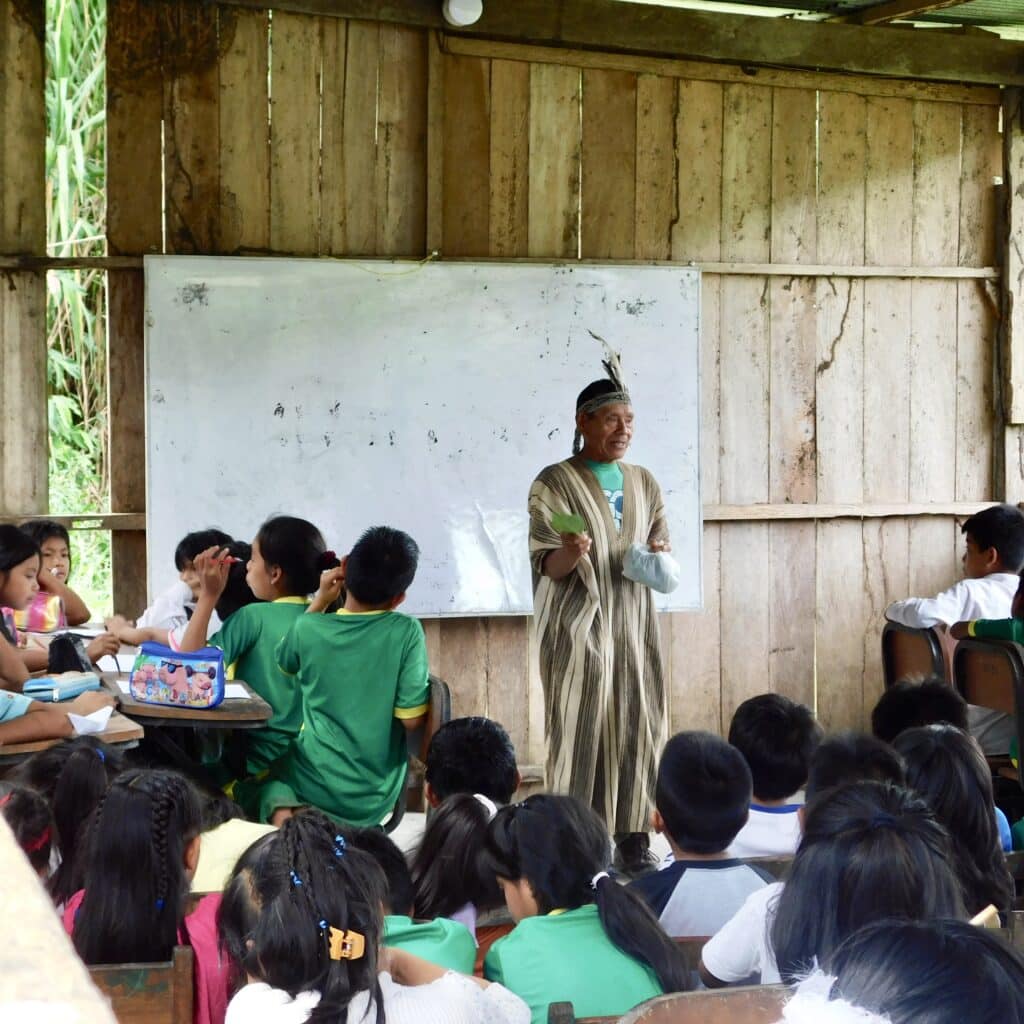
The project strengthens the cultural identity of the Matsiguenka native community in Monte Carmelo by revitalizing ancestral knowledge and promoting intergenerational learning. Through workshops on the use and importance of medicinal plants, community members and schoolchildren explore traditional healing practices and deepen their connection to the forest. A community-managed botanical garden showcases native species and serves as a space for cultural exchange and education. These activities not only preserve intangible heritage but also position traditional knowledge as a key tool for ecological conservation.
The project empowers local communities—especially children and youth—through hands-on environmental education. It establishes eco-clubs in schools, where students participate in interactive workshops that promote sustainable living and care for creation. Community members receive training on the ecological and economic value of forest conservation and are encouraged to take part in restoration and protection efforts. By fostering a shared understanding of environmental stewardship, the project builds a strong foundation for long-term local leadership in conservation.
